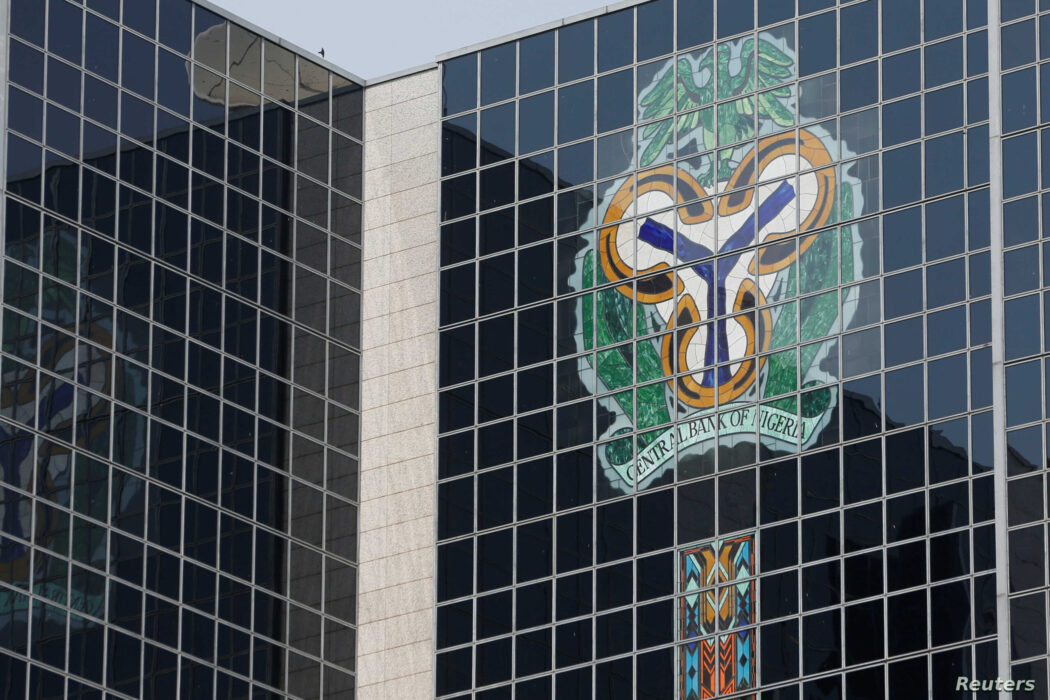An Adjutant Professor of the North Dakota University, USA, Engr. Dr. Wisdom Patrick Enang has recommended multiple ways to stimulate forex in order to save the falling Naira.
Dr. Enang offered the recommendation over the weekend, while speaking with newsmen on the subsisting decline in the value of the Naira, and the urgent need to stimulate forex supply into the Nigerian Economy.
The renowned and shrewd Energy Expert mentioned that the Naira had depreciated to an all-time low value of N955 per dollar at the parallel market as of August 14, compared to its value of N760 on June 13, before the forex unification. He attributed this price jump to two major factors: the activities of currency speculators; and the fact that the Nigerian economy is hugely import based, which has resulted in a shortage of the greenback, as demand for same outstrips supply, even in the official market.
Dr. Enang equally lamented the steep depreciation of the Naira in the official market, from an average price point of N471 to the dollar on June 13, to an average price point of N780 to the dollar as of August 10, following the government’s policy to float the Naira.
According to Dr. Wisdom Enang, the Naira has lost 25.65% and 65.65% of its value in two months at the parallel market and official market respectively, after the liberalization of the foreign exchange market.
Speaking further, Dr. Enang faulted the CBN’s decision to hastily float the Naira, considering the plan as ill-timed and premature, in view of the fact that at the time of the policy implementation, there were no provisions in place to stimulate the FX supply required to adequately hedge the floated currency.
“The removal of fuel subsidy, and floating of the Naira simultaneously, are two policies that inadvertently exert enormous cost-push inflationary pressure on the Nigerian economy. Worst of all, the stochastic nature of the current Naira exchange rate regime, with lack of a well-coordinated response strategy from the CBN indicates that this policy was championed without detailed consideration by the Executive, and hastily implemented without adequate economic sensitivity and consequence analysis by the CBN. This sort of decision reveals the fact that there is a disconnect between Nigeria’s Monetary Policy Framework, and its Fiscal Policy Framework.”
Dr. Enang also re-echoed the inferences of leading global financial institutions like the IMF (International Monetary Fund), the Bank of America, and the World Bank, who unanimously agree that although the Naira was overvalued under the previous exchange rate regime where the currency value was pegged arbitrarily by the CBN, it is now grossly undervalued under the new regime where the currency value is being floated.
“According to Bank of America (BOA) analysts, the fair value estimate for the United States Dollar to the Nigerian Naira exchange rate now stands at N680 per USD, indicating that the Naira is undervalued under the current average official exchange rate of N760 per USD.” Dr Enang also added that the effect of “currency speculators” is also responsible for the current undervaluing of the Naira, terming the observation a “knee-jerk” effect, which will normalize over time.
He maintained that until there is enough supply to meet FX demand over the long-term, stabilizing the exchange rate will be difficult. Speaking further, the ebullient scholar revealed that the idea of using Nigeria’s foreign currency reserve to stabilize the exchange rate market was not sustainable, as Nigeria’s gross reserves, according to recent CBN data, are still on a decline. Dr Enang however added that in July 2023, following the removal of fuel subsidy, the rate of decline slowed to $167 million month-on-month, compared to a fall of $975 million in June 2023.
The renowned Fellow of both the Nigerian Society of Engineers (FNSE), and the Nigerian Institution of Safety Engineers (FNISafetyE) explained that the decreasing Nation’s foreign reserves have placed significant limitations on the Central Bank’s capacity to engage in major FX market interventions in recent times, revealing further that Nigeria’s FX reserves cannot cover more than 5 months of import, based on the Nation’s first-quarter 2023 monthly average import bill of $3.9 billion.
Dr. Enang, who is known for his massive campaigns and advocacy for the adoption of the right democratic imperatives, and strong advocacy for the adoption of a value-driven approach to governance and leadership, stressed further that Nigeria’s FX dilemma is further compounded with the pending backlog of FX repatriations yet to be processed.
In view of the foregoing challenges, Dr. Wisdom Enang recommended two viable ways Nigeria can explore to holistically stimulate FX supply in the short-to-medium term, in order to meet its FX repatriation obligation to investors in full, and export bill in part.
He explained that Nigeria can accrue gradual supply of FX from NNPC LTD’s remittances to the segregation account via the CBN. This he opined, could still be implemented in tandem with the emergency $3 billion crude repayment loan secured by the NNPC LTD from AFRIEXIM bank, to help the Federal Government in its ongoing fiscal and monetary policy reforms aimed at stabilizing the exchange rate market.
While reacting to questions from reporters on details surrounding the $3 billion loan by the NNPC LTD, Dr. Enang clarified that this loan differs from a crude-for-refined products swap deal which Nigeria had implemented previously. He further added that unlike in the crude-for-refined products swap deal agreement where the Federal Government did not earn any proceeds from the swap, the current deal provides an upfront cash loan against proceeds from a limited amount of future crude oil production from NNPC LTD.
Explaining further, Dr. Enang informed that the deal is cleverly structured to be mutually beneficial to both the Federal Government and NNPC LTD, in the sense that the loan will assist NNPC LTD in settling taxes and royalties in advance, and at a discounted price value, as well as also equip the Federal Government with the necessary dollar liquidity to stabilize the Naira, with limited risk.
Contextualizing further on the inherent risk on this loan deal, Dr. Enang mentioned that NNPC LTD’s risk of a loan default was very low, since the loan value covers just a fraction of the company’s entitlements from future crude sale.
He further added that the risk to Nigeria as a Nation was non-existent, as there are no sovereign guarantees tied to the loan. According to Dr. Wisdom Enang, this current move by the Federal Government is a laudable strategic approach towards ensuring a balance between the current economic needs of the Nation, and its future production capabilities.
Dr. Enang equally recommended that Nigeria can also holistically stimulate FX supply in the near-term by obtaining some form of balance of payment facilities from global financial organisations like the World Bank and IMF, stressing that this will help the country meet some of its pending FX obligations, a move that will assuredly send a positive signal to global investors.
The Chairman Board of Trustees of the BBC-praised and succour-giving Sarah Enang Humanitarian Foundation (SEHF) recommended that to increase FX supply in the long-term, there must be an increase in the exports of goods and services, as well as increased foreign portfolio investments and foreign remittances, emphasizing that Nigerians must also intentionally grow their appetite for locally produced goods.
Dr. Enang also advocated for more support from the Federal Government, for domestic manufacturers, so that they can increase the quality and quantity of their products and services, to enable them satisfy local demand, and also scale operations towards satisfying the needs of the export market at globally competitive prices.
To better manage the volatility in the Nigerian exchange rate market, Dr. Enang advocated that the Federal Government consider deploying a managed-float regime where the Federal Government through the CBN, could leverage the stimulated FX supply to provide periodic interventions as may be required to further stabilize the FX market.
“The CBN may revert to a complete Naira float in the medium term, when the anticipated capital inflows would have helped stabilize the market”.
Dr Enang equally lamented the variance observed between the Naira exchange rate in the official market, and that of the parallel market, even in the current free-market system. He highlighted that this disparity was also a key factor of cost push inflation equally bedevilling the Nation’s already ailing economy.
To address this issue, Dr. Wisdom Enang recommended that the CBN should authorize licensed BDCs to also bid for forex at official prices, and sell same to retail customers at rates that offer marginal profits.
To mitigate the concern of money laundering, Dr. Enang recommended that the CBN should put in place strict restrictions on the maximum quota each BDC is allowed to bid for and sell to private buyers and businesses, in addition to requesting detailed documentation from each buyer, in order to confirm proof of purchasing funds, and intended use of the procured FX.
The Ethical and Attitudinal Reorientation Czar equally suggested that to shore up dollar supply, sourcing of foreign finance through asset-linked bonds must also be prioritized by the Nation’s Debt Management Office (DMO).
Dr. Enang also advocated for strong sustained collaboration between the Federal Government and critical stakeholders in the sector like Fintech operators, traditional financial institutions, and other FX market participants, even as he advised the Federal government to employ stiffer measures on diaspora remittance apps and crypto exchange platforms offering currency exchange services to Nigerians at home, and in diaspora at black market rates. According to Dr. Enang, these platforms which he termed as a “Speculator’s Haven” are detrimental to the Nation’s economy in their current operating form, and needs to strictly regulated, and closely monitored for compliance.











